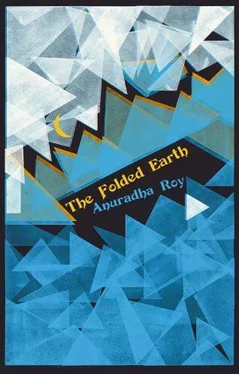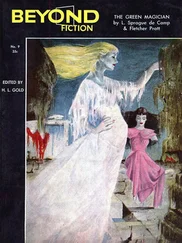Because of Diwan Sahib and the rumour of those letters, I met many scholars and writers. I never knew who they were, but he gave me a summary after they left. “That man’s a fraud, he does nothing but plagiarise.” Or: “That woman sits in Chicago all year and then produces authoritative work on Indian villages after two weeks of fieldwork.” If he approved, he called them “good boy” or “good girl”. “That was Ramachandra Guha,” he said once, of a tall, distracted-looking man in glasses who had addressed him as Sir throughout. “He’s a good boy, but he didn’t have a single drink.”
“Those letters should be in the Nehru Memorial Library, Sir,” Ramachandra Guha had told him. “They should not be at the bottom of a trunk.”
“They are safer at the bottom of a trunk than in any Indian library I know of,” Diwan Sahib had said.
Diwan Sahib was brusque enough with visitors to acquire a reputation for being outright rude, and none of his acquaintances were allowed to grow into friends. Although he could not do without seeing me every day, he could become cantankerous or quarrelsome in minutes. But with his new-found relative, he was transformed. He hovered, he stood waiting as Veer looked around the house, he said in tones of apology that it needed repairing and cleaning up. Veer wandered from room to room as we followed, occasionally stopping and saying, “Where’s the walnut wood chest that used to be here?” or “There was surely a desk in that corner.”
“If you come and live here,” Diwan Sahib said vaguely in Veer’s direction, in a voice so hesitant that it did not sound like him at all, “I would prod myself and get some repairs done.”
I lingered with them that evening and watched Veer stow his things in one of the unused bedrooms. He cast an appraising look around it as he unhitched his backpack and changed his walking shoes for slippers. It was clear he intended staying for a while and I could tell that the predictable temper of our days was to change. Himmat Singh staggered in with a bundle of wood and coaxed a fire out of it. “Very damp room, Chote Sa’ab,” he said to Veer. “But it will be better with this fire.” He had known him “this high”, he told me in the kitchen. In those days, Veer would often come during his school holidays and even then the semi-circular room with bay windows and prints of rearing tigers on the walls was his room. Himmat Singh began to work through a pink hillock of onions and set eggs to boil. Because Diwan Sahib himself ate very little in the evenings, there was hardly any food to be had. Now dinner had to be conjured up out of nothing and Himmat Singh bustled about with a self-important air. “Ah, the old times were so different,” he said. “Visitors every evening and the kitchen busy from morning till night. I had an assistant just to chop and cut and clean. You should have seen how much Chote Sa’ab ate. My own stomach would feel good and full to see him licking bowls clean, and at the end he sighed like this — fuuuuf — and he said, ‘Himmat Singh, there is nobody who can cook like you in all of the Kumaon.’”
That evening, Diwan Sahib grew merrier and merrier, drinking twice the amount he normally did. When I left them, Veer was pouring him a fourth generous measure of rum and Diwan Sahib was saying in approving tones, “A man’s inner nature is revealed by the size of the drinks he pours.”
My little house was cold and dark from being locked up all day. There was a power cut by then. I found my way by torchlight to the cupboard that hid my bottle of rum. I laid the bundle of unread newspapers beside me on the floor and leaned back in my chair, taking long sips. It was this solitary drinking that gave me the deepest satisfaction, as if it were an affirmation that my time was my own at last, after a whole day’s effort with other people. It pleased me that if anyone — other than Diwan Sahib, who supplied me with the rum — had known that I drank alone, I would have been labelled a “Bad Woman”. This thought alone was usually enough to restore me to tranquility.
But tonight I was restless and unsettled. I huddled in a shawl, hardly tasting the rum. I put off warming up my food or lighting candles or drawing my curtains. The squares of cold glass in the window panes had frozen the stars in the black night’s sky. I breathed on the glass and wrote the stranger’s name in the immediate mist. Veer. Where had he been all these years? Why had Diwan Sahib never mentioned this nephew before?
Diwan Sahib was fiercely private. I was the only person he ever allowed close: to argue with, confide in, joke with, or scold. Once, in passing, he had said in his acerbic way that seeing how I haunted his rooms, I might as well abandon the cottage I rented from him, and move into his house. We had smiled at that, and I had left, knowing that he now wanted to be alone. He was not the kind of person who could share his life with anyone else. He had been single all his life and it was plain he disliked constant company. But the arrival of his nephew had changed everything in one afternoon. He had not fed me my daily diet of odd news from around the world. He had not even thought to ask for his precious Statesman . I could not remember the last time he had forgotten about the paper. It was what he waited all morning for; it was his link with the world he had renounced.
I fell into a troubled doze in my chair and woke aching and cold more than an hour later, when the power returned and the harsh white light bulb overhead snapped to life.
Life changed for Charu that December. It began in one of the old estates of our town. Like the Light House, other estates of the kind in Ranikhet had quaint British-sounding names like Oakley and Knock Fierna, which was all that had survived of the British who built them in colonial times. The one where Charu often went to look for pasture was called Aspen Lodge. It rambled over many acres of hillside and had deodar and oak forests, a stream, and several ruined peasant huts. The big bungalow was made of stone. It had French windows, a deep, pillared veranda going all the way along its front, five chimneys, and a flat expanse of land around it that must once have been a lawn. Fruit trees twisted with age stood at the edges of the flat part, and below them were terraced slopes that in the monsoon were restless with pink swathes of cosmos.
It was a puzzle to outsiders why of all houses this one should lie buried in tall grass and bushes, almost in ruins, when it cried out for tended lawns, people, parties. The locals knew why it was derelict: a woman called Molly Mispeller had hanged herself from a roof beam in the dining room in colonial times and ever since it had been haunted. Anyone who lived in the house thereafter came to grief: all sorts of bad things happened to them and their families. It had been hurriedly abandoned by the last two families who scoffed at the ghost and had sunk good money into the estate.
That winter, a rumour had meandered its way around Mall Road, idly at first, then with energy, that there was one more aspiring unbeliever: the house had been bought by a hotel chain that planned to start operations elsewhere in our town. The hotel’s manager was to live in Aspen Lodge. “He will be driven out in a week,” it was declared. Mrs Mispeller would see to that. She was said to walk about the house at night, sitting occasionally to play a ghostly piano.
Charu knew nothing of Mall Road rumours, nor did she believe in ghosts, so she often brought her cows to graze at Aspen Lodge. In the rainy months, she had come every day and cut tall grass from those slopes with her sickle, looking like a bush with legs as she carried enormous bundles of it home on her head. On this sun-browned winter morning, she loosed her cows on the grass that had survived the cold and sat on a boulder to fiddle with a flaming-orange sweater she had been knitting for weeks.
Читать дальше












